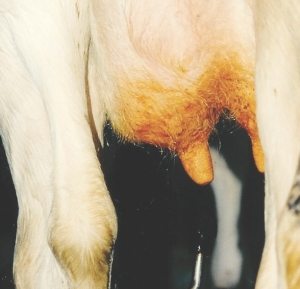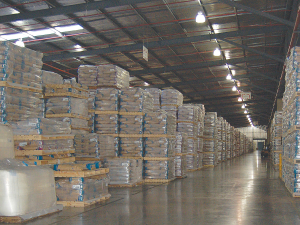“We recommend mixing new solutions regularly,” says Trevor Gulliver, business and product development manager with GEA subsidiary FIL in New Zealand.
“The trick is to keep it fresh… no more than a couple of days’ supply at a time.”
Incorrect dilution changes a spray’s effectiveness so care’s needed to ensure the right amounts of water and solution are used for the time of year and farm/weather conditions.
“We can’t stress enough the importance of reading the instructions and carefully measuring the quantities – there is absolutely no room for guess work when it comes to this job,” he says.
FIL’s teat spray dilution charts show different dilution rates for iodine and chlorhexidene sprays for early, mid and late lactation, though there’s a case for maintaining the early season 4:1 dilution rate as research shows it reduces clinical mastitis in the following season and cuts bulk somatic cell count, says the firm.
All-over application, and cleanliness of equipment are also key.
“You need to ensure good coverage of all four teats including the ‘face’ of the front teats, which often get missed but are the ones most prone to becoming dry and cracked,” notes Gulliver.
Spray and mixing containers should washed and scrubbed regularly, using only warm water, and the same jug should never be used for measuring teat spray and detergent.
Gulliver says the same rule applies if using both iodine and chlorhexidene sprays: clean equipment thoroughly when switching from one product to another.
“Use different containers and mark them clearly, for example teat spray only or detergent only, or chlorhexidene or iodine only.”
Gulliver says both actives have their place, with iodine currently used by about 70% of farms, particularly during early lactation when wet, muddy conditions create an ideal environment for bacteria to flourish.
The best products not only kill bacteria, but also improve teat health, and FIL has the only teatspray with Manuka honey in it, which has proven anti-bacterial and healing properties, it says.
“The inclusion of Manuka honey helps the spray adhere to the teat surface itself, thereby improving teat condition generally, ensuring they remain soft and supple.”
FIL notes research* indicates only 12% of teat spray applications in New Zealand are carried out correctly, and mastitis costs the industry about $200m/year in lost earnings due to reduced days in milk, milk quality penalties and culling acute or repeat clinical cases.
* A Joe, S Cranefield, I Hodge and T Clarke. Summary of problems identified in 200 milking assessments from mastitis problem herds during 2008/ 2009 in two regions of New Zealand (Waipa and South Canterbury). IDF Mastitis Conference 2010.

















